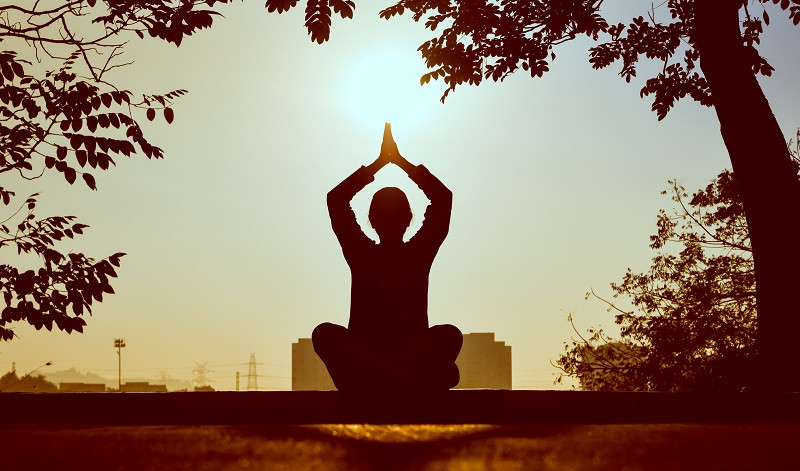
We live fast and look for compensatory solutions ; So we turn to yoga, meditation and other times psychotropic drugs.
But… Why don’t we free ourselves from high anxiety? Well, it is clear that there are healthy practices but they often work only as an antidote. I’ll tell you why.
Anxiety as a social phenomenon
Today we live in the age of speed, without stopping to see what is happening inside us. The Spanish Medicines Agency (AEMPS) confirms that 11% of the Spanish population consumes anxiolytics. Many other people resort to antidotes looking for a short-term solution to mitigate anxiety and stress. There are countless recommendations to reduce anxiety. We tend to look for external responses and compensatory practices to mitigate the consequences of uncomfortable anxiety. But, by the way, this is not the way and I will tell you what you have never been told.
The fallacy of fighting anxiety as the great enemy
When we feel high anxiety We tend to think that we need more time to rest, a vacation, yoga or meditation. We often start looking for a series of tips to “fight anxiety” just like an enemy and we find some actions that seem like the perfect antidote:

We look for how to relieve anxiety, reduce it, calm it, confront it, control it and even combat it to eliminate it. So with great enthusiasm we start with new routines: yoga classes, a new meditation, etc.
However, we have to leave work in a hurry to go to yoga class, we can’t concentrate on meditation because ideas burst into our heads, we light the candles but the cell phone doesn’t stop ringing. And there you say: I will have a stressful day so I will need to disconnect for at least an hour. Still, anxiety remains high and you fight against it to compensate. You sound familiar?
But have you realized that anxiety is the elevated tension in the body that tells you that you should make a change instead of fighting it As if it were the real problem?
Practices that relax us are not good or bad in themselves. Later you will discover when they are an antidote and when a healthy habit.
Why do we look for antidotes?
An antidote is something whose function is to counteract the effects of a toxin. Here I call antidote to the practices we use to prevent the undesirable effects of toxic high anxiety.
Have you ever wondered why we look for almost magical answers to avoid suffering from high anxiety? I’ll give you some of the many possible answers:
So, we stick to what’s easy: follow a recipe, the advice, the new fashion, fight not to change. It also happens that it is easier for us to repair than to change. For example, we prefer to take a digestif after an excessive meal than to limit the amount you need to eat.
So, everything we do to mitigate or repair, unfortunately It is a failed solution in the medium and long term.
- You may be interested: “Emotional management: 10 keys to master your emotions”
Healthy habit or antidote?
As we have said, practices that relax us are not good or bad in themselves. Now you will discover when they are an antidote and when a healthy habit.
You may be wondering now… How do you know if the yoga you are doing right now is an antidote or a healthy routine? For example, tell me if you rush to class, if in class you think about what you have to do next, if you identify various sources of stress in your day. If the answer is yes, then yoga will be an antidote. Here, yoga is not bad because it at least mitigates anxiety, but it is not the cure and it is not an indicator of a good life.
On the other hand, if you take your time to go to yoga class, enjoy the path, you concentrate on the activity. To this you add: proper time management, regulating demands, among other health indicators, here it is possible that yoga is part of a healthy life.
So, to know if it is a healthy habit or an antidote, the secret is revealed when you ask yourself these questions:
- For what you do?
- How do you do it?
- Is it part of a balanced lifestyle?
Find balance
When anxiety is very intense and persists over time, we can get sick. There are various psychological illnesses, from panic disorder to phobias or anxiety attacks. It is also common for diseases such as irritable colon, ulcers, among others.
So, look for balance in the area of your behaviors, your emotions and your actions so that anxiety is found. in healthy quantities. Keep in mind:
- Don’t use an activity as an antidote because it is a failed solution. That same activity as part of a balanced life is health.
- Do not seek to mitigate anxiety or make its symptoms more bearable.
- Seek to make changes so that anxiety is in its proper measure as a driver of your actions.
Remember: don’t naturalize high anxiety. Do not justify bad living. Learn to know yourself and make the necessary changes. Since we cannot always do it alone, consider having a professional guide to find the most effective ways to make the changes you need to live fully and maximize your well-being.








